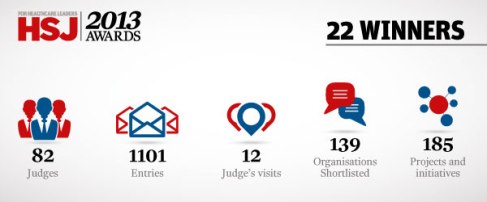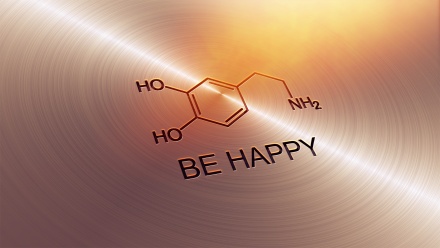
As I am soon to reach the milestone of 10 years working in the NHS, I thought I would reflect back on one of the most pivotal factors that has influenced my overall experience: Leadership. I approached the selection of this topic with some caution – I am sure most people are probably sick to death of trendy topics like leadership and the various psychosocial theories that have come out over the years. So I thought I would try to approach the topic from a slightly different angle by looking at the chemistry of leadership (bear with me here).
How Leaders are Made
There has always been a debate about whether good leaders are born or made. In a recent video by Simon Sinek titled ‘Why Leaders Eat Last’, he makes a compelling argument that good leaders are made, not born. In a compelling 45 minute video, he lays out some of the biology underpinning great leadership:
A leader is nothing to do with rank. Leadership is a choice. Anyone who puts their self interest aside to protect the people next to them and improve things around them is a leader. It is therefore important to note that not all people in authority are leaders. Some are there entirely to look out for no one else but themselves. This is not leadership.
So what is it that drives good leadership? Well apparently its more scientific that I thought. Bear with me as I try to explain:

Dopamine
This is the reward chemical which makes us feel good from crossing off tasks as achievements. We feel good when we cross off set goals and plans because our brains release dopamine. This mechanism is used in business and industry to motivate performance via targets. It feels good to get 100% achievement against targets and the buzz from this achievement makes us want to do it again and again to get that same buzz.
However, dopamine comes with a warning as it can be highly addictive. This would explain why the banking crisis occurred – like with all addictions the rewards for achieving targets overshadowed everything else. Bankers were willing to sacrifice everything and everyone to get that next dopamine rush from reaching targets. I can’t help but wonder what implications this has on the use of targets in our healthcare system.

Serotonin
Moving on to another chemical and one which is coined THE leadership chemical: Serotonin is said to be responsible for feelings of pride and status. It is why public recognition makes us feel good. All those awards and public acknowledgements of achievement release Serotonin. This explains why an e-mail with a certificate attachment saying ‘Well Done’ doesn’t have quite the same effect as standing in front of your loved ones, peers and team as you are given an award.
The interesting thing about how Serotonin works in this situation is that at the same time that you get a rush of that Serotonin and fill up with confidence, your peers/boss/team also get a rush of that Serotonin and share your sense of pride for being part of that achievement. This strengthens connections, raises confidence and status but also sets into motion a cycle where we want to repeat that feeling of pride and achievement. So we seek other opportunities to get other awards – to get another rush of Serotonin. This might explain the multi award winning streaks we see with some individuals and teams…
However, the expectations laid out by the actions of Serotonin can also lead to a loss of confidence and trust in our leaders. As demonstrated above, Serotonin strengthens the social contract between a leader and their team. We have no issues with our leaders getting the bigger office or more pay. In fact, the promise of a repeat of another Serotonin rush from a team win, means that most followers voluntarily give their leaders the best of whats on offer and some special treatment too. This is not on the basis of teams believing the leader is necessarily better than the group, but on the premise that the team believes that the leader is there to shield them from danger. Serotonin (and the confidence boost it gives) drives good leaders to run towards danger in order to protect the team. The group invariably grows to believe that they are all in it together and are looking out for each other with the leader at the helm.
However, when this social contract is broken – when the person we believe to be our leader sacrifices our safety for their own gain or we feel they have failed to protect us, then this trust is lost. The result of this is a new focus on self preservation. With the trust broken, individuals feel unsafe, they stop going that extra mile to get another Serotonin boost and connections weaken. At the same time, another chemical kicks in and initiates the fight or flight response.

Cortisol
That other chemical is Cortisol – the stress chemical which has preserved our species from the stone age till now and probably for centuries to come. Simon makes the important point that humans have not outlived dinosaurs or the saber tooth tiger because we are stronger or smarter but because we protected each other by working in groups and knew when to fight and when to run. Cortisol is great if there is an imminent threat as it helps us run or fight the danger. As part of our response to danger, Cortisol shuts down systems that are unnecessary for fighting or running e.g. our immune system and the system responsible for growth. This enables our body to focus on fighting or running. Once the danger passes, our Cortisol levels should subside.
However, in organisations and teams where the trust is broken and staff feel unprotected, levels of stress and Cortisol remain high. This means that our capacity for growth and immunity remain low. The result is what we see in teams with people who can’t seem to take anything in or learn anything new. This goes hand in hand with plummeting performance and a rise in sickness. It is not by coincidence that this happens, it is an indication that the environment has become too consistently stressful with no reprieve and no chance for Serotonin or indeed Dopamine to rebalance the trend.

Oxcytocin
But fear not, this gloomy set of circumstance can be turned around with good leadership involving yet another chemical. Oxytocin is the chemical of love. It is a feel good hormone resulting from human physical contact and connection. It makes us feel safe, valued and loved. We can get a rush of oxytocin from touch – something that explains the feeling of trust we get when we shake hands on a decision and get nervous if someone refuses to shake hands, or from simply sitting together and feeling like we are near someone who gets us.
We can also get a dose of oxytocin from doing good deeds. However, trying to game the system by simply giving money to charity or doing something that takes little time and effort doesn’t work. We don’t get the same rush of oxytocin if we try to game this system and it doesn’t feel as good. This is because the money we give is replaceable. But if we spend time – something we will never get back – then we and the person on the receiving end of that time and effort get that warm good feeling as Oxytocin is released.
The above applies in organisations – simply telling a member of staff that you will pay money to solve a problem doesn’t make them feel valued. Responding to a call of help or distress with an e-mail saying ‘I care’ doesn’t make the recipient feel valued. However, picking up the phone or walking to that member of staff to ask ‘How can I help you?’ makes them feel valued. This is why I am a firm believer that walking the floor can never be underestimated – it puts the leader in and amongst the team and releases oxytocin – making both the leader and the team feel good. As it turns out, over time, the build up of Oxytocin in our body protects against Dopamine addiction and improves immunity too so its a win win in my humble opinion.
Summary
So what is the above trying to tell us about leadership? The messages I personally take away are:
- Leadership is a personal choice made by those who want to improve things around them for the benefit of others -regardless of rank or position;
- Teams and leaders do not excel in a system which relies solely on targets to drive improvement;
- Serotonin is the Leadership chemical which primes us to repeat success by using public acknowledgement of achievements to share the sense of pride and build stronger bonds with our teams;
- Leadership is rewarding but very challenging. Good leaders know that the perks come with many sacrifices. Those who put self interest before the team and fail to protect their teams from harm lose trust and invariably promote an environment of stress and fear.
- To drive performance and excellence, leaders need to remember oxytocin and be present with their teams. Take that extra effort to pick up the phone or walk the floor to build/re-build trust and promote the feelings of safety so that people can re-focus on doing their work.
So thats it from my ten years in the NHS. It would be great to hear your experiences and theories on leadership, so please feel free to leave a comment.
This blog post is inspired by Eurythmics: Sweet Dreams (Are Made of This)